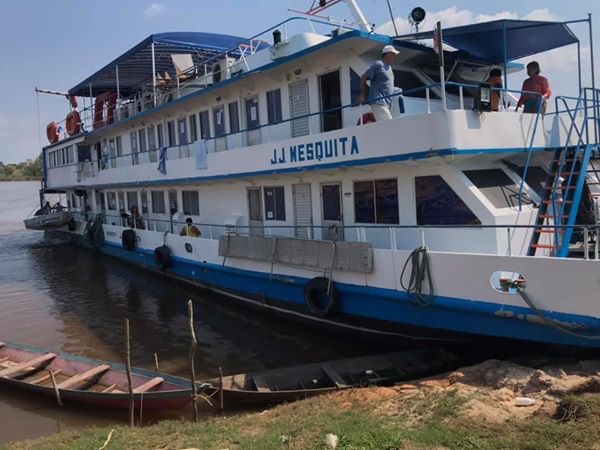Brazil #1: Manaus Presbyterian Church: A church that is both missionary and missional
by Juan Sarmiento
Presbyterians have a long history of partnerships in the Brazilian Amazon. Considered to be in a remote area of the country with the most diversity of indigenous communities, it seems to be an unlikely location for what today may be the largest Presbyterian congregation of the Western Hemisphere, Manaus Presbyterian Church (IPM, by its initials in Portuguese).
The first Presbyterian pastor Lourenço de Barros was sent to Manaus in 1899, only 40 years after the beginning of Presbyterianism in Brazil. Mr. Barros died four years later due to a health condition exacerbated by insufficient medical care. The work was taken over by Rev. William M. Thompson.
It wasn’t until the leadership of Rev. Caio Fabio that the church experienced a time of rapid growth and expanded vision to go reach out to villages by the Rio Negro and Amazon rivers. In 1964 the PCUS commissioned Frank Arnold to serve alongside Rev. Fabio.
Located in a growing city of two million that is also a gateway to remote villages in the Amazon, the IPM has a very well thought out strategy for its ministry in the urban center. Its vision for outreach includes holistic evangelism, medical care, church planting, leadership development, and ministry among prisoners, people experiencing homelessness, and Venezuelan refugees. Currently, the church hosts four Sunday services at their main campus, as well as a youth service and an English speaking gathering on Saturday evenings. They have planted 35 churches throughout the city of Manaus and another 109 churches along the rivers and tributaries in the Amazon basin and many others in the Sertão (combined with water wells) and the north-east region of Brazil.
According to its mission statement, the IPM “seeks to be a church faithful to the Word of God, missional and relevant in society, to develop in the areas of worship, evangelization, prayer, teaching, and discipleship, in which each member is discipled, trained, develops his/her ministry in order to work together with the body of Christ to reach Manaus, the Amazon, and the world for Christ.”
For its regional outreach, IPM maintains and staffs three medical mission boats that take regular trips up the river. Each boat includes a doctor’s office, a dentist’s office, and a pharmacy that is well stocked with medicines and equipment. They serve remote villages along the Rio Negro and Amazon Rivers, many of them indigenous. Our Outreach Foundation group joined around 12 Brazilian medical doctors, nurses, and volunteers in addition to a group of 19 people from Faith Church (RCA) and a highly skilled crew. For five days, we were aboard the J.J Mesquita which bears the name of the pastor Emeritus and mission president of the IPM. The senior pastor is Rev. Francisco Chaves dos Santos and the mission vice president is Rev. Djard Cadais de Moraes.
Most of the growth in the urban area is driven by a coordinated effort that combines small groups, performing arts and English camps. In recent years, they registered an annual increase of 725 people in membership and have reached a membership of 10,000. They have also developed a Missionary Training School where around 160 lay pastors receive practical training for their ongoing ministries. The IPM has also started hosting an extension site for the Presbyterian Theological Seminary of Central in Goiania with 30 students. While the IPM emphasizes its Presbyterian roots and identity, it favors a contemporary style of worship. It is a member of the Amazon Presbytery of the Presbyterian Church of Brazil, a Reformed body with approximately one million members that was started in Rio de Janeiro 160 years ago this month by the pioneering work of Rev. Ashbel Green Simonton. It is increasingly sending some of its workers to short term ministry initiatives in Europe, the Middle East, and Africa.
The primary purpose of our visit was this: to learn firsthand from the ways in which the IPM is going about expressing its commitment to the Great Commission and how those ways may be helpful to us in The United States. That purpose was fulfilled much beyond our expectations.
Note: Since access to the internet along the Amazon river was difficult, we had to wait until now to begin posting reflections about the trip.









